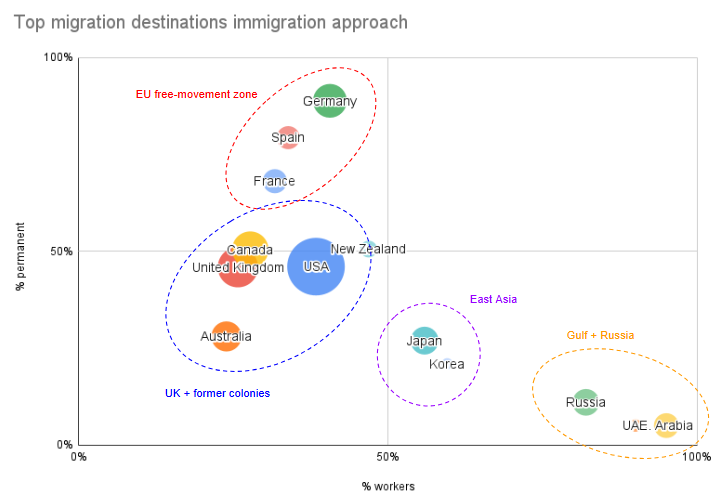Lately I’ve been trying to get into the headspace of an ancient Greek (1).
Philosophers back then had some pretty funny notions:
Plato thought there was a world of ideas, where, for example, there was an ideal bed, of which all existing beds are just a copy.
Aristotle talked a lot about a thing’s “essence” as being core to its identity. For example, that a tree has some fundamental “tree-ness” property. If it loses its essence, it ceases to be a tree.
Parmenides believed that if we can think of a dead person, then that person must still exist somehow.
Outside of poetry, most people now don’t think there is some fundamental metaphysical difference between a bed and a table — both are just different configurations of atoms (2). And we don’t take the fact that we can think of someone as evidence that they exist.
So why do some of the smartest thinkers in antiquity get themselves into entire modes of thinking that now seem so wrong? Here’s how I’m coming to understand it:
Imagine you have not had any formal science or math education. But you are curious, you like thinking, and have the leisure to indulge yourself (3). How would you start trying to make sense of the world around you?
The winning move, in retrospect, was to restrict your questions to things that could be measured and tested. Don’t use concepts like “beauty”, “fitness”, or “essence” unless they are connected to a specific measurable quantity. And do this patiently, collecting tons of data over the course of lifetimes to understand which theories are right vs wrong (4). This is the approach that eventually gave us vaccines, airplanes, and the internet.
Now not only is all of this pretty hard. It’s also just not that obvious from the start how useful all this data collection will be.
The Ancient Greeks did not don the straightjacket of modern science. They investigated the physical world, but also metaphysics, ethics, politics, and music. They were interested in a thing’s purpose, not only causes and effects. And they described the relationships they observed or hypotheses using language, rather than just math.
This ancient approach to learning is wide-reaching, and poetic. The scientific approach to learning about the world is narrow and dry. But happens to be incredibly fruitful — allowing us live long lives, safe from disease, amidst the wonders of the modern world.
It took humanity hundreds of thousands of years to build the societal systems to pursue this method effectively. The great triumph of modern science is that we’ve tricked many of our smartest young people that the best use of their time is sitting in a lab taking detailed measurements and doing precise calculations. Their work is critical to all of us getting to live the (relatively) charmed lives that we do in the year 2025.
—
1. This came about because I’ve been reading A History of Western Philosophy by Bertrand Russell - a terrific read to give you a big-picture model of the entirety of western history.
2. People who know a bit more physics might think that rather than atoms, things are really made up of wavefunctions or fields or something. But people like that tend to be a confused bunch, and we’ll leave them to their own troubles for now. The point is that we all think of tables and beds as fundamentally made up of strictly physical things, with no metaphysical essence.
3. Most people in antiquity were, of course, illiterate, destitute, and/or enslaved. So to the extent they pondered the secrets of the universe, we don’t have any record as to what they thought.
4. A more detailed recipe to kick of a scientific revolution:
Only make claims that you can prove or disprove by observation and measurement. Then start taking down lots of observations and measurements.
Remember - you also need to track all these measurements super carefully. And paper is really expensive.
Oh, and to make sense of all the measurements you’re making, you will need more complex math than just addition and subtraction. So get on with inventing that.
And you can’t do all this by yourself. You also need to convince a bunch of other people to do the same. Even when most of the measurements aren’t useful, and the claims are wrong. And buy yet more paper so you all can correspond with each other.
And yet more: You should also convince rich people to invest lots of money into supporting you all while you do this, and help you to build the better and better gadgets you will need over time.
Whew, science is hard.


